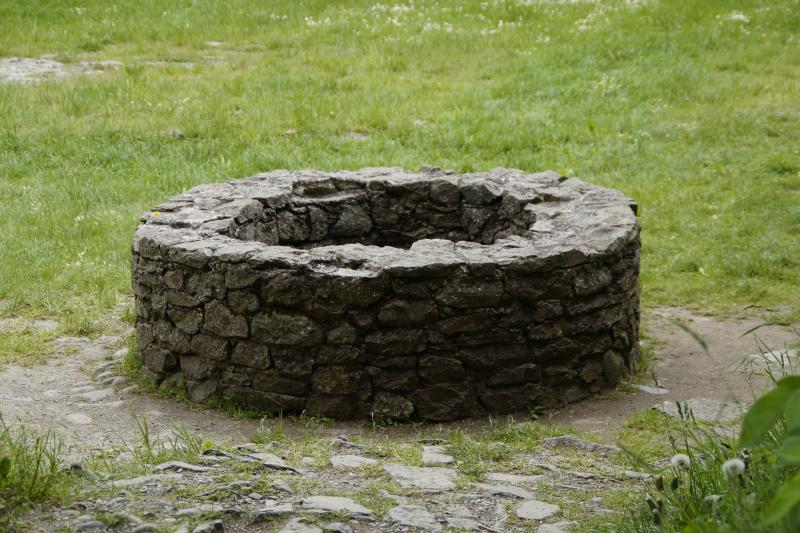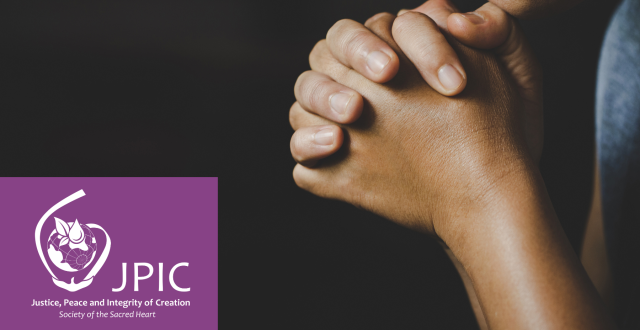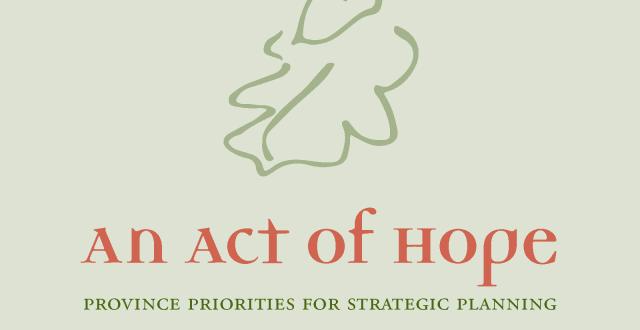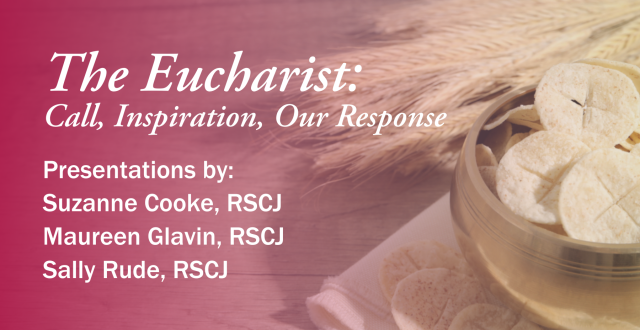
This week, the liturgical calendar ushers us into "ordinary time." There is nothing about this time that is ordinary.
As we gather at the well with the Samaritan woman, we are confronted with the reality that Jesus knew and would experience with his own body: exclusion, injustice, judgement, racism, supremacy, torture and execution.
It seems inconceivable to hold the realities of our own complicity with the surrounding presence of God's abiding love. And yet, such is the mystery of the resurrection.
Recognizing the trauma, the terror, the grief and loss, and the power of the resurrection, let us spend a few moments in the silence of truth, honoring the lives that have been lost to brutality and injustice.
Then, let us gather at the well of our own lives and go deeply into this extraordinary "ordinary time."
- HEART Response Team
First Friday reflection
It was the Third Sunday of Lent, the last Sunday before social distancing prevented our gathering for the Eucharist in church. In our midst was the Woman at the Well, proclaimed in the Gospel of the day. This anonymous Samaritan woman has long intrigued me: her choice of high noon for her chores; her composure when her solitude was interrupted; her increasingly frank dialogue with this stranger about water, husbands, and true worship and especially her openness to let her heart be tutored and transformed there by the side of the well. Mostly, I have known and loved this woman’s thirst for living water, and I have had a kind of holy envy that her encounter with Jesus was a miracle of grace, an invitation to change her life forever.
The Samaritan woman has stayed with me during these days of the pandemic. I have considered the meaning and the demands of conversion – of hers after the encounter with Jesus at the well and of ours during this time of testing and pain. Perhaps these days of social isolation have forged in us a deeper relationship with God or offered the invitation to a new way of life. Perhaps, if we mine the experience of the coronavirus across the world and in the depths of our hearts, we, too, might experience a moment of grace and transformation.
Let’s look first at the woman’s experience and then consider our own. The story of the woman at the well is a wonderful encounter and dialogue between the woman and Jesus, a dialogue of faith and freedom and mission. But there is much more to the story. Did you ever think about the rest of her life, the fallout, the change demanded, the pain of transformation over the long haul? Did you ever speculate about what happened when she went home to her fifth partner, and whether it was hard for her to establish new relationships with the people who had ostracized her? What was it like when Jesus moved on to other towns and villages, and she found herself again in ordinary time, that place where most of us live our lives, where we try to remain faithful to God, and yet stumble and drift, and then return again and again for God’s mercy and healing?
The woman at the well is each one of us, trying to be faithful to the God who has captivated our hearts, yet struggling with a variety of temptations. When the memory of her encounter with Jesus started to fade, when the demons returned to haunt her, do you think the Samaritan woman may have fallen into self-doubt? Was she afraid to trust her own religious experience, afraid to believe that she really was a loved sinner who had met the Lord and, in the encounter, been transformed? Did she sometimes think she had made it all up, the conversation, the tenderness of his glances, the liberation she experienced which had, for a time, given her such courage and such hope? Was self-doubt, even despair, a temptation for the woman?
How do you think she maintained her relationship with Jesus? Did she ponder his words in her heart, go over every slightest detail of the scene, try to understand the meaning of “living water” and “worship in spirit and in truth?” Did she follow Jesus’ movements after he left that place, wait for news from other travelers, search him out and try to spend more time with him? Or, did the relationship die slowly, fade away almost imperceptibly, because she got involved with other things, perhaps too busy contending with her new-found prominence?
What happened when she went back home? Did her moment by the well enable her to settle into a relationship and to remain faithful in the ups and downs, the “betters and worses” of domestic life? Did faithfulness to her promises, her solemn vows, remain a struggle all her life long? Where did she find – or how did she summon – the strength to be constant now in her fidelity?
How did she get over the wound of not being anyone satisfactory? Having been shunned by the townspeople, do you think she decided to punish them for their years of ill-treatment, remain just a bit aloof, perhaps even arrogant, cherishing her publicity and her status? Do you think it was hard, after so many years of mistreatment, genuinely to forgive those who had looked down on her? Do you think she sort of put them “on probation,” or was she able to leave resentment behind? Was she held hostage by recrimination or could she be generous in forgiving, as generous as Jesus had been with her?
To imagine the on-going conversion story of the Samaritan woman is to ponder our own. I may not have named your demon yet, but no matter. We are each of us only too aware of the patterns of our life that prevent our being whole and loving followers of Jesus. We have known moments of conversion, and we have known the struggle of sustaining fervor, keeping love alive, and dealing with the inevitable changes that genuine conversion sometimes demands.
And now, COVID-19.
Our lives have been completely upended, even unmoored. What wisdom did we receive as we abandoned the comfort of our daily routines? What patterns did we change, what losses and what liberations did we experience? Was gratitude awakened in us for much we have taken for granted? Did the generosity of a stranger or the compassion of a friend touch and transform us? Did we experience a deeper bond with those across the globe overwhelmed with suffering and death? Were we humbled by those who have risked their lives to care for their sisters and brothers? Did we come to realize that the poor of our world live a kind of perpetual pandemic? Did we experience a deeper relationship with God during this time of testing and pain?
We cannot have gone through these weeks without being irrevocably changed.
Let us pray for one another and for the whole of the human community that we will live our lives with fresh insight and with the grace that is ours for having navigated these weeks.
Reflection: Kathleen Hughes, RSCJ
Image: M W from Pixabay



